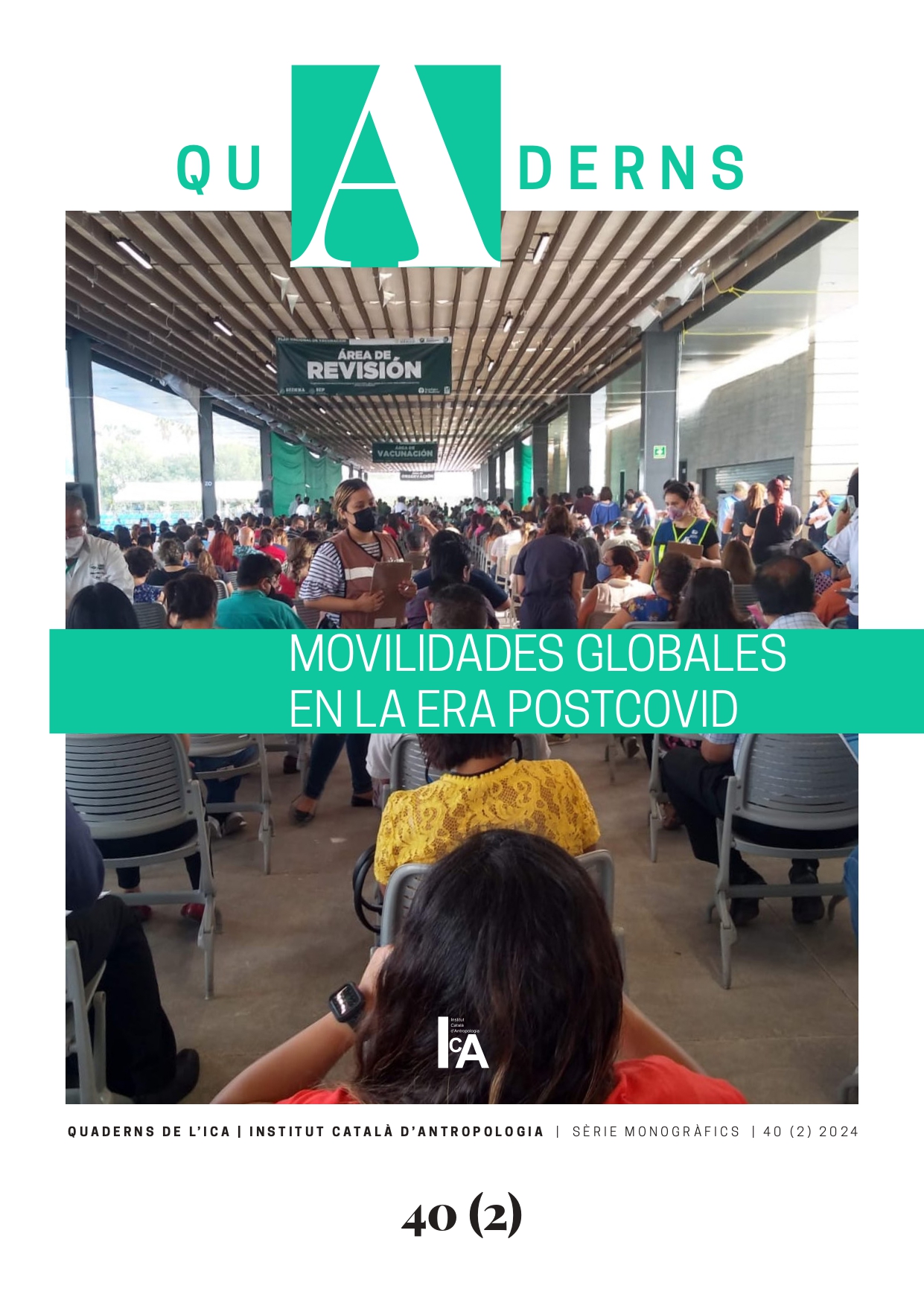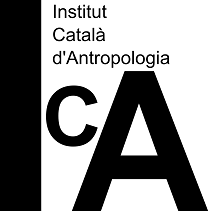Technological globalism: dynamics of international mobility and community in Barcelona’s coworking spaces
DOI:
https://doi.org/10.56247/qua.470Keywords:
Coworking spaces, community, globalization, Barcelona, 22@Abstract
This article aims to understand how the phenomenon of coworking space production influences professional mobility dynamics by analyzing the results in terms of social practices. The starting point is an ethnographic field study conducted in four coworking spaces in Barcelona, which provides insights into their organizational factors and user experiences. The central argument questions the official representation of coworking spaces as cosmopolitan community units, as these spaces are experienced individually due to the constant mobilities that define their social structure. The findings reveal that the community representation of coworking spaces is a promotional strategy that conceals a fragmented social reality. Consequently, it is concluded that they are social institutions composed of the economic practices and mobilities of an internationally operating autonomous workforce.
Downloads
Global Statistics ℹ️
|
246
Views
|
89
Downloads
|
|
335
Total
|
|
References
Avdikos, V., & Pettas, D. (2021). The new topologies of collaborative workspace assemblages between the market and the commons. Geoforum, 121, 44-52. DOI: https://doi.org/10.1016/j.geoforum.2021.02.012
Bandinelli, C. (2020). The production of subjectivity in neoliberal culture industries: the case of coworking spaces. International Journal of Cultural Studies, 23(1), 3-19. DOI: https://doi.org/10.1177/1367877919878449
Bauman, Z. (2006). Comunidad: en busca de seguridad en un mundo hostil. Madrid: Siglo XXI.
Bennis, W. M., & Orel, M. (2024). Taboo Trade-Offs in the Community Business: The Case of Coworking. Journal of Management Inquiry, 33(1), 77-91. DOI: https://doi.org/10.1177/10564926231187292
Berbegal-Mirabent, J. (2021). What do we know about co-working spaces? Trends and challenges ahead. Sustainability, 13(3), 1416. DOI: https://doi.org/10.3390/su13031416
Blagoev, B., Costas, J., & Kärreman, D. (2019). ‘We are all herd animals’: Community and organizationality in coworking spaces. Organization, 26(6), 894-916. DOI: https://doi.org/10.1177/1350508418821008
Bouncken, R., Ratzmann, M., Barwinski, R., & Kraus, S. (2020). Coworking spaces: Empowerment for entrepreneurship and innovation in the digital and sharing economy. Journal of Business Research, 114, 102-110. DOI: https://doi.org/10.1016/j.jbusres.2020.03.033
Busuttil, S., & Hannonen, O. (2024). Local responses to global nomads. Pursuit.
Butcher, T. (2018). Learning everyday entrepreneurial practices through coworking. Management Learning, 49(3), 327-345. DOI: https://doi.org/10.1177/1350507618757088
Capdevila, I. (2014). Different Inter-Organizational Collaboration Approaches in Coworking Spaces in Barcelona. http://dx.doi.org/10.2139/ssrn.2502816 DOI: https://doi.org/10.2139/ssrn.2502816
Castells, M. (1989). La ciudad informacional. Tecnologías de la Información, reestructuración económica y proceso urbanoregional. Madrid: Alianza.
CBRE. (2019). La revolución de los espacios flexibles: claves y tendencias para entender el fenómeno que está transformando el Real Estate. https://www.cbre.es/es-es/research-and-reports/insights/articulos/la-revolucion-de-los-espacios-flexibles
Charnock, G. Ribera-Fumaz, R. (2023). Hacia un nuevo espacio urbano. En Charnock, G.
Mansilla, J. Ribera-Fumaz, R. (eds). 22@Barcelona, un distrito de innovación en disputa, 21-40. Barcelona: Icaria.
Col·lectiu Punt 6. (2023). Capitalismo y patriarcado, una alianza contra la vida en los proyectos urbanos. En Charnock, G. Mansilla, J. Ribera-Fumaz, R. (eds). 22@Barcelona, un distrito de innovación en disputa, 155-170. Barcelona: Icaria.
Cushman & Wakefield. (2019). Market Shot Oficinas: Distrito 22@ Barcelona, junio 2019. https://barcelonacatalonia.eu/wp-content/uploads/2019/09/Informe-MarketShot-22BarcelonaJunio-2019.pdf
Cushman & Wakefield. (2020). Marketbeat Barcelona. Oficinas Trimestre 2 2020. https://webcache.googleusercontent.com/search?q=cache:RFMIchJjeMMJ:https://www.cushmanwakefield.com/-/media/cw/emea/spain/research/eu-marketbeat-offices-barcelona---t2-2020_es.pdf%3Frev%3D8149278ebc864258950d24c954716a48+&cd=1&hl=es&ct=clnk&gl=es
De Peuter, G., Cohen, N. S., & Saraco, F. (2017). The ambivalence of coworking: On the polítics of an emerging work practice. European journal of cultural studies, 20(6), 687-706. DOI: https://doi.org/10.1177/1367549417732997
Delgado, M. (2005). Espacio público y comunidad. De la verdad comunitaria a la comunicación generalizada. En M. Lisbona. (Coord.), La Comunidad a debate, pp. 39-60. México: COLMICH-UCACH.
Deskmag (2022). Coworking trends survey. https://www.deskmag.com/en/coworking-statistics-all-results-of-the-global-coworking-survey-research-studies-948
Gandini, A., & Cossu, A. (2021). The third wave of coworking:‘Neo-corporate’model versus ‘resilient’practice. European Journal of Cultural Studies, 24(2), 430-447. DOI: https://doi.org/10.1177/1367549419886060
Garrett, L. E., Spreitzer, G. M., & Bacevice, P. A. (2017). Co-constructing a sense of community at work: The emergence of community in coworking spaces. Organization studies, 38(6), 821-842. DOI: https://doi.org/10.1177/0170840616685354
Guijarro, B. (2023). El Poblenou, un experimento perpetuo. En Charnock, G. Mansilla, J. Ribera-Fumaz, R. (eds). 22@Barcelona, un distrito de innovación en disputa, 139-154. Barcelona: Icaria.
Hannerz, U. (1998). Conexiones transnacionales: cultura, gente, lugares. Madrid: Cátedra.
Hannonen, O. (2024). Emergent geographies of digital nomadism: conceptual framing, insights and implications for tourism. Tourism Geographies, 1-11. DOI: https://doi.org/10.1080/14616688.2023.2299845
Luo, Y., & Chan, R. C. (2020). Production of coworking spaces: Evidence from Shenzhen, China. Geoforum, 110, 97-105. DOI: https://doi.org/10.1016/j.geoforum.2020.01.008
Mariotti, I., Akhavan, M., & Rossi, F. (2023). The preferred location of coworking spaces in Italy: an empirical investigation in urban and peripheral areas. European Planning Studies, 31(3), 467-489. DOI: https://doi.org/10.1080/09654313.2021.1895080
Marrero, I. (2008). La fábrica del conflicto. Terciarización, lucha social y patrimonio en Can Ricart, Barcelona. Universitat de Barcelona.
McRobbie, A. (2016). Be Creative: Making a Living in the New Culture Industries. Cambridge:Polity Press.
Merkel, J. (2015). Coworking in the city. Ephemera, 15(2): 121-139.
Merkel, J. (2019). ‘Freelance isn’t free.’Co-working as a critical urban practice to cope with informality in creative labour markets. Urban Studies, 56(3), 526-547. DOI: https://doi.org/10.1177/0042098018782374
Merkel, J. (2023). Coworking spaces as social infrastructures of care. In Coworking Spaces: Alternative Topologies and Transformative Potentials (pp. 83-95). Cham: Springer International Publishing. DOI: https://doi.org/10.1007/978-3-031-42268-3_6
Moore, F. (2011). Ambivalence, anthropology and business: a review of ethnographic research in International organisations. Social Anthropology, 19(4): 506-519. DOI: https://doi.org/10.1111/j.1469-8676.2011.00184.x
Navas, M.G. Espinosa, H. Dalmau, M. (2023). Género y fronteras de la gentrificación: estudio comparativo de dos barrios del 22@. En Charnock, G. Mansilla, J. Ribera-Fumaz, R. (eds). 22@ Barcelona, un distrito de innovación en disputa, 171-194. Barcelona: Icaria.
Orel, M. (2019). Coworking environments and digital nomadism: Balancing work and leisure whilst on the move. World Leisure Journal, 61(3), 215-227. DOI: https://doi.org/10.1080/16078055.2019.1639275
Orel, M., Mayerhoffer, M., Fratricova, J., Pilkova, A., Starnawska, M., & Horvath, D. (2022). Coworking spaces as talent hubs: The imperative for community building in the changing context of new work. Review of Managerial Science, 16(5), 1503-1531. DOI: https://doi.org/10.1007/s11846-021-00487-4
Puigbó, J. (2024). “Barcelona tiene talento”. Narrativas legitimadoras en las políticas urbanes de atracción de trabajadores: un análisis de la construcción discursiva del distrito 22@. Scripta Nova, 28(1). DOI: https://doi.org/10.1344/sn2024.28.43362
Sklair, L. (2001). The transnational capitalist class. Oxford: Blackwell
Spinuzzi, C., Bodrožić, Z., Scaratti, G., Ivaldi, S. (2019). “Coworking is about community”: but what is “community” in coworking? Journal of Business and Technical Communication, 33(2), 112-140. DOI: https://doi.org/10.1177/1050651918816357
Tönnies, F. (1955). Community and Association (Gemeinshaft und Gesellshaft). Londres: Routledge.
Trapaga, I. (2018). La Comunidad, una revisión al concepto antropológico. Virajes, 20(2), 161-182. DOI: https://doi.org/10.17151/rasv.2018.20.2.9
Waters-Lynch, J., & Duff, C. (2021). The affective commons of Coworking. Human relations, 74(3), 383-404. DOI: https://doi.org/10.1177/0018726719894633
Wright, A., Marsh, D., & Wibberley, G. (2022). Favours within’the tribe’: Social support in coworking spaces. New Technology, Work and Employment, 37(1), 59-78. DOI: https://doi.org/10.1111/ntwe.12214
Yacoub, G., & Haefliger, S. (2024). Coworking spaces and collaborative practices. Organization, 31(1), 87-114. DOI: https://doi.org/10.1177/13505084221074037
Zea, M. (2023). Estado del Coworking en España. CoworkingSpain
Downloads
Published
How to Cite
Issue
Section
License
Copyright (c) 2025 Quaderns de l'Institut Català d'Antropologia

This work is licensed under a Creative Commons Attribution-NonCommercial-ShareAlike 4.0 International License.
Distributed under the terms of the Creative Commons Attribution 4.0 International Use and Distribution License (CC BY-NC-SA 4.0)




